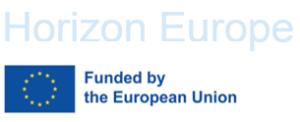Increasing Excellence in utilizing X-Ray research and Neutron Scattering Techniques at the University of Tartu (EXANST)
EXANST
EC TWINNING project “EXANST”.
Funded by the European Union under grant agreement No. 101159716.

Click here for RÅC International Summer School held on August 24 – 31, 2025
The University of Tartu (UTARTU) is the top research university in Estonia and the Baltic States. The twinning project EXANST, “Increasing Excellence in Utilizing X-ray Research and Neutron Scattering Techniques at the University of Tartu”, is concerned with further raising the research profile of UTARTU in the field of materials science, by enabling researchers from UTARTU to take full advantage of the best European facilities for materials’ characterization.
In particular, the aim of this twinning project is to develop local expertise at UTARTU in the X-ray research techniques and neutron scattering techniques that are available at leading European synchrotrons and neutron facilities. Another aim of the project is to enhance expertise at UTARTU in the complementary computational methods that are used for materials’ modelling, and analyzing the data generated in X-ray and neutron experiments.

The skills and experience of the top-class leading counterparts (MAX IV, FZJ, ICL) in synchrotron and neutron research methods, and modelling will be transferred to the recipient partner (UTARTU). EXANST project seeks to elevate the research capacity, management and international cooperation and visibility of UTARTU. Each participant organisation and its experts bring in differing and valuable contributions, brought together by an experienced Coordinator and Project Team, organised through a well-proven governance structure used commonly at the University of Tartu. While UTARTU already has considerable infrastructure developments and is strong in some specific synchrotron methods, still rather small group of academic researchers have been benefiting from the access to X-rays and neutrons large-scale facilities.
In EXANST twinning project, advanced partners will provide training in synchrotron (MAX IV) and neutron based (FZJ) powerful experimental methods and opportunities, complemented by relevant computational methods (ICL). Scientific cooperation between different institutions in Estonia will be significantly improved, as well as cooperation between all EXANTS partners beyond duration of the project. Knowledge exchange will take place in field of neutron scattering research: laser-neutron pump-probe setup for protein research and low temperature sample environment for QENS studies. UTARTU strengths include research infrastructure for various types of optical and luminescence spectroscopy which are of interests to the advanced partners. UTARTU research team also has knowledge in development of setups for energy materials research and ultrafast scintillator research


